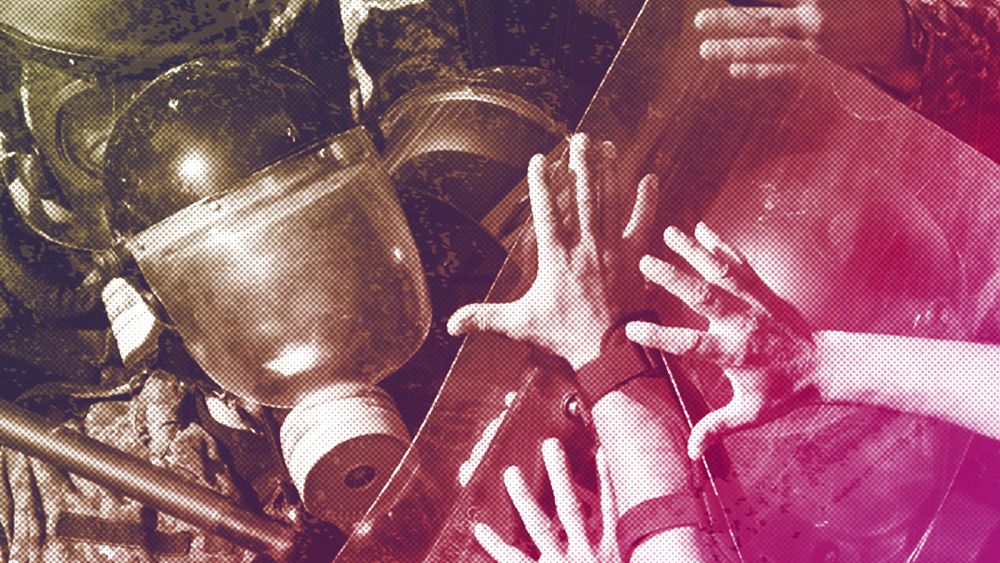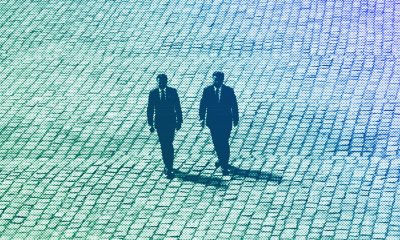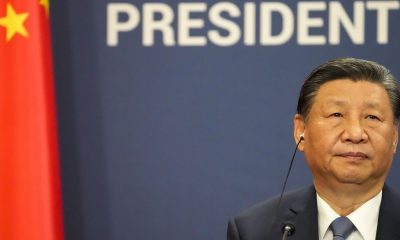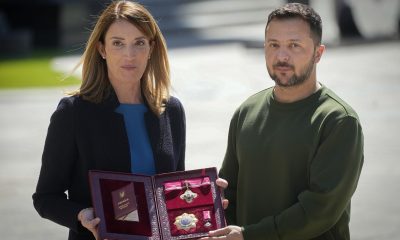General News
When it comes to climate, poverty and democracy, the West should put its money where its mouth is

By Dr Markus Engels, Secretary General of the Global Solutions Initiative
For progress, architects of the world order need to take a hard look in the mirror, Dr Markus Engels writes.
The laundry list of crises we now face is well known: climate change, geopolitical conflict, obscene inequality, and pandemics.
These problems are not new.
What is new? The simultaneity, for starters.
When we consider that they are worsening at a time when the international power order is undergoing a massive shift, then we have to wonder whether the world is actually capable of overcoming these challenges.
Radical changes are indeed necessary
What can the West do? It’s clear that the West could contribute significantly to solving the most urgent crises by putting its money where its mouth is to tackle climate change and provide debt relief for the poorest states and regions.
The West needs to radically change its own economy and societies to make them stable and sustainable in the long term.
More importantly, it must also support this kind of transformation worldwide. This is not just because the G7 states and their Western allies have the greatest ability to finance and technologically equip societies to become more sustainable.
It is also because this group of states itself produces the highest levels of CO2 emissions and bears a larger portion of the responsibility.
Let’s not forget the legacy of colonialism, the effects of which are still felt today and which have been instrumental in creating today’s unequal, unjust world economic order.
Taking responsibility for all of this means, at the very least, providing financial support for and sharing expertise with the Global South.
How to finance our way out of a poly-crisis world
Financial help goes a long way, but it can only be effective if recipients agree to strict transparency and good governance rules, so that corruption and mismanagement are not financed by public funds.
Unfortunately, there are too many examples of corruption, as Transparency International recently confirmed in its annual report.
The money needed to pay for reducing poverty and for protecting important global “public goods,” such as a healthy climate and biodiversity, can come from at least three places.
First, by prioritising the resources we already have more effectively.
Second, by expanding the mandate of the international financial institutions such as the World Bank and the IMF.
Last but not least, by creating new funds, for example, through a speculation tax – a so-called “click-tax” – for digital transactions or by taxing wealth.
If we don’t make it a priority to find the money to make the change, the international system will not be fit to face its major challenges.
The Global South needs a seat at the table
As well as answering financial questions, it’s vitally important for the Global South and the world’s most vulnerable states to become more involved in the global decision-making process.
Their perspective is key because, in many cases, they are the least to blame and yet the most affected by problems such as climate change.
The G20 could make its decision-making fairer by including the African Union in its circle, putting the AU on an equal footing with the EU. This would send a strong message.
Political will is also crucial. To this end, I urge G20 countries to make a strong statement of intent during this year’s Indian presidency.
Reforming the international order is not just achievable but urgent. It must not be delayed by ongoing sham debates about “democracies versus autocracies” that we see in many Western capitals.
We need to strengthen our political resolve
There is also palpable hypocrisy in the debates on climate change.
A handful of Western states repeatedly claimed that banning coal mining was their highest priority – until, that is, the energy supply was threatened after Russia invaded Ukraine.
This is another reason why governments in the Global South are now asking themselves why they should do without cheap Russian oil and gas, which had until recently been a major source of profits for Europe.
There are many other reasons why calls for democracy or a shift away from fossil fuels ring hollow in many regions around the world.
Twenty-first-century multilateralism must therefore do less sermonising and instead demonstrate a more authentic balance of interests, taking into account the needs of vulnerable states and clearly naming its own interests as such.
This is how to (possibly) save the world
The global community has already agreed on a set of values and priorities in the UN Charter, the Paris Climate Agreement and the 2030 Agenda.
It’s high time to put this agenda into action.
For example, by deciding this year on stable and sufficient funding for the Sustainable Development Goals and for the loss and damage fund that was agreed at COP27 in Egypt, which supports those most affected by climate change.
The COVID-19 pandemic showed us that no one is safe until everyone is safe. The broader lesson is to pay more attention to the interests of the Global South.
By doing this, we can not only possibly save the world but also build credibility and trust. This is the kind of thoughtful, well-designed multilateralism we need in the twenty-first century.
Dr Markus Engels is the Secretary General of the Global Solutions Initiative, a non-profit organisation founded to propose policy responses to major global problems and the organiser of the annual Global Solutions Summit in Berlin.
At Euronews, we believe all views matter. Contact us at view@euronews.com to send pitches or submissions and be part of the conversation.
Disclaimer: No copyright infringement intended. All rights and credits reserved to respective owner(s).
























